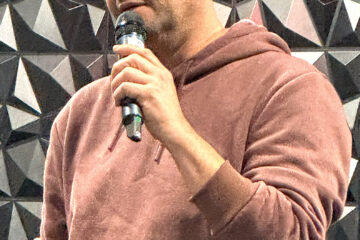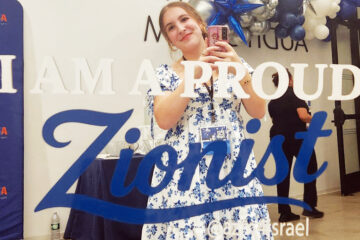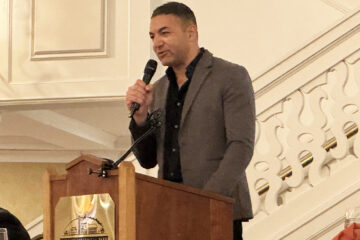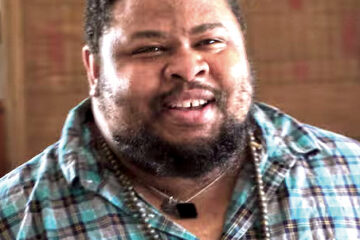Temple Beth Or celebrates 40 years
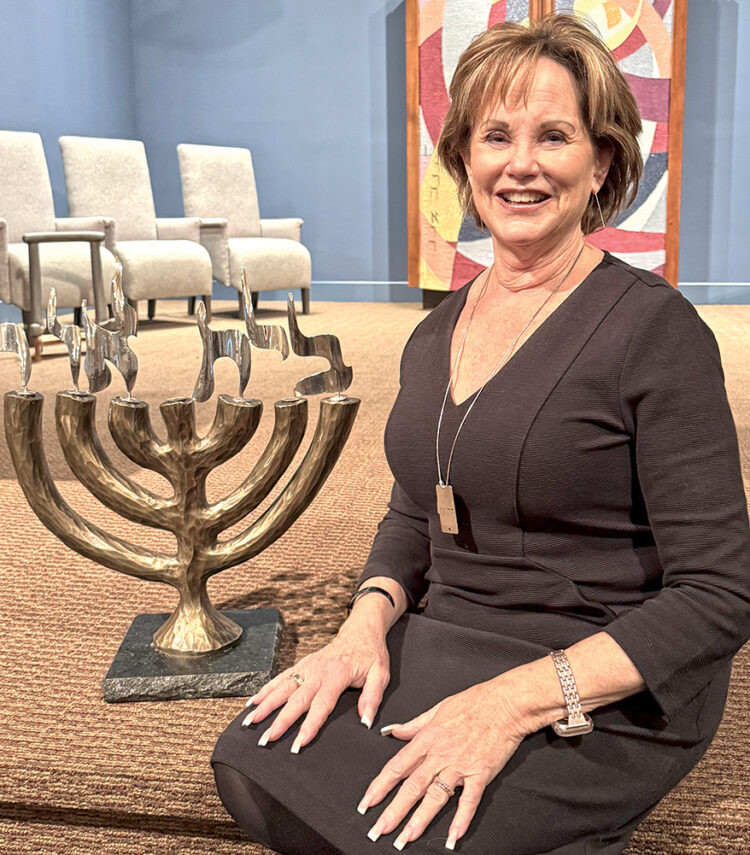
‘We were all young, we all grew up together’
By Marshall Weiss, The Dayton Jewish Observer
“Oh, I remember it vividly,” Rabbi Judy Chessin says of Temple Beth Or’s first Friday night Shabbat service, Jan. 25, 1985. In the worst snowstorm of that winter, more than 100 people came out to the new Reform congregation’s first service and board installation.
“We set up the social hall, we had chairs in the round,” says Chessin, who had only received her rabbinic ordination seven months before. “We had a little card table, little flowers and candles. I told the story of the Holocaust scroll, because we had a Holocaust scroll at the time.”
She remembers the enthusiasm at the Oneg Shabbat afterward. “So many of these families were young and excited. Just the whole idea of being able to build something — a new thing.”
A congregation of several firsts
Temple Beth Or (House of Light) was the first Jewish congregation in Dayton’s south suburbs. Its rabbi was the first woman to lead a synagogue in the Dayton area.
She would also become the first congregational rabbi in the Dayton area to officiate at interfaith weddings — for couples who committed to keep Jewish households (not an option for Orthodox or Conservative clergy).
It’s been 40 years since that night of beginnings in space rented at the old Fairhaven Church at Marshall and Rahn Roads in Washington Township.
The young new rabbi is now the longest serving rabbi of the Dayton area’s Jewish congregations.
Since that first service, she’s been a regular commuter from Cincinnati to the same building, which the temple has owned for most of its years. She and her congregation have matured together.
“It is just breathtaking for me to still officiate where I did their parents’, their grandparents’ events,” she says. “Very few rabbis have that opportunity.”
A month before Chessin was ordained as a rabbi in 1984 at Hebrew Union College in Cincinnati, two couples — Caryl and Don Weckstein and Sherry and Daryl McKenney — met to consider starting a Reform congregation in the suburbs south of Dayton.
“They wanted something more,” Chessin recalls. “They wanted something close, closer to home. And they wanted an all-inclusive place, not only of worship, but school and learning.”
The demographic shift southward
After World War II, virtually all of Dayton’s Jews lived in the Dayton View neighborhood. In the 1960s and ’70s, they tended to migrate to the suburbs northwest of Dayton.
In 1975, Jews new to the area who had moved south of Dayton established the Jewish Association of South Dayton to connect their families through social, cultural, and educational events.
By the mid-1980s, 18 percent of the area’s Jewish population lived in the suburbs south of Dayton. With more than 300 members in the 1980s, JASD ran preschool and middle school programs and led monthly Shabbat services at what was then Temple Israel’s south facility.
The Wecksteins and McKenneys were JASD members. Don Weckstein says JASD was probably the main factor that led Temple Beth Or to form. “And Rabbi Chessin is, I would say, the primary factor that enabled us to grow,” he adds.
Along with JASD members, Chessin says several of the 40 original Temple Beth Or member families were previously unaffiliated.
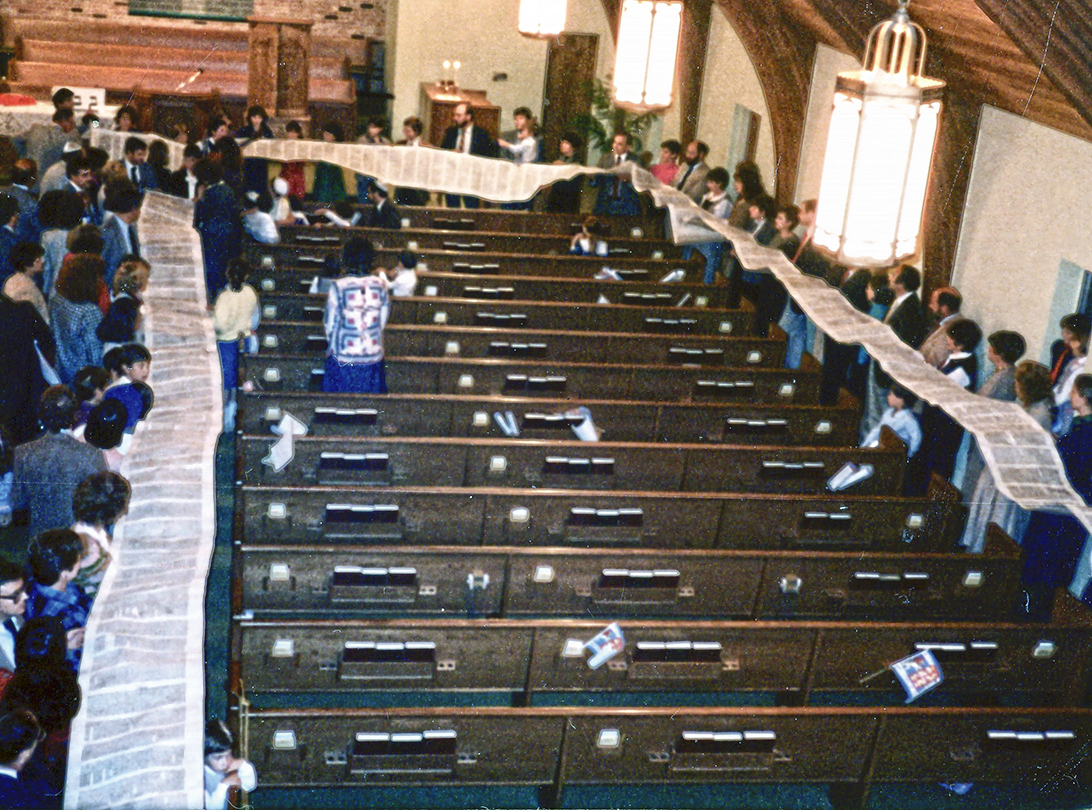
“There were families from Beavercreek, folks from mostly south of town, southern suburbs, kids who went to Centerville schools.”
Weckstein served as the congregation’s first president. He says one precept that set Temple Beth Or apart at that time was that it established its own Hebrew and religious school.
An issue for Jewish families that lived south then was that children’s Jewish education was run by the Jewish Federation’s Bureau of Jewish Education, not the synagogues.
“The rabbis weren’t involved at all,” Sue Nelson, one of Temple Beth Or’s first congregants, recalls of the BJE’s approach — and preparations for bar and bat mitzvahs.
“And then when it came time for actual direct preparation, Temple Beth Or involved Rabbi Chessin and whoever the music person was at the time,” she says. “She is the heart and soul of the place.”
A member of Temple Beth Or’s steering committee, Alan Steinharter, had asked Hebrew Union College faculty member Rabbi Michael Cook to recommend a rabbi who might serve the new congregation.
Cook suggested his soon-to-be wife, the newly ordained Rabbi Judy Chessin. An integral member of the congregation, Cook died in 2021 at age 79.
Nelson was on the rabbinic search committee. Chessin, originally from Orlando, Fla., was the only rabbi they interviewed. “When she talked about her work at Camp GUCI,” Nelson says, “I was like, yeah, this is the person we want, because you especially want a rabbi who likes being with kids.”
An educator by trade, Nelson was involved with Temple Beth Or’s religious school for its first years. Her daughter and grandchildren are active members of the congregation.
Nelson notes that Chessin was the first female rabbi to lead a Dayton area synagogue.
“For some people in the Jewish community and at Temple Beth Or, including myself, that was a very big departure from what we were accustomed to.”
Chessin says gender has never been a centerpiece of her rabbinate.
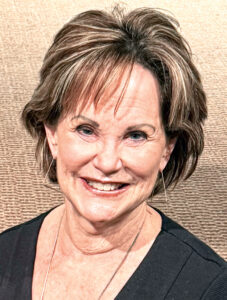
“It’s just not. And maybe it’s just an old-school thing. Yes, I’m a woman, but I didn’t really push that. I never talked about feminism. It’s just not relevant to me.”
Marsha and Stephen Goldberg were also at that first Shabbat service. They were already members.
“Our kids were getting ready to start Sunday school in Hebrew,” he says. “We were looking for something closer to the south area. The more we learned about it, we jumped right in. Judy was so young when she started. We were all young, we all grew up together. We were all about the same age. We were determined to get this temple off the ground, and Judy made it easy.”
The rabbi recalls that in Temple Beth Or’s beginning months, she would lead a monthly service.
“We were getting 100 people, lots of kids, which was exciting.”
Stephen Goldberg admits he was a little skeptical of Chessin as the spiritual leader of the new congregation. And then he met her.
“Here is this young rabbi who just came out of school,” he says. “But the more we got to interact with her, the more we found out that she was an incredible person. In the very beginning and until today, she knows you and she relates to you very quickly.”
‘You’re always growing into a new place’
Chessin doesn’t believe seminaries make rabbis. “They make pre-rabbis and then you work for 10 years and figure out how to be a rabbi,” she says.
“You’re always growing into a new place. Judaism itself is changing. I think the movements are changing, the demographics are changing, so there’s always something to explore.”
She says the newest generation of Temple Beth Or parents has its own way of navigating Judaism distinct from previous generations in her rabbinate.
“I don’t see as many of them finding their singular place and owning it. I see them more as a consumer generation where they can find great stuff at the JCC, great stuff here, great stuff at Chabad, and they have loyalty to all of those. In the founding days of Temple Beth Or, people found one place, and that’s where they did Judaism: that’s my community, that’s where I learn, where I study, where I socialize and everything else. They now want a bit from every column.”
This consumer mentality, she says, will lead to more cooperation and build more bridges among the Dayton area’s Jews.
“We need more kinds of things that bring us together rather than divide us.”
Why has she stayed with the temple for as long as Moses led the Israelites?
“There is something wonderful about just being in a place where families are for their whole lives and for generations,” she says.
“I didn’t have to break into a new culture. It just was created around me. And so I don’t have to deal with having to change how I want to do things. It’s a blessing.”

How does she keep it fresh? “Kids are always excited about something. You just know what excites them or interests them. You meet them where they are.”
Kids are pretty much the same as they’ve always been, she says. But social media has brought about more complex times for high schoolers.
“They have a lot more anxiety issues. And it’s been hard to get them excited and passionate about Israel so we can get them there. It’s a lot more difficult.”
The rabbi says parents rightfully fear the antisemitism their kids experience in school.
“It’s always the jackass, you know, some stupid person making some stupid joke or just being in-your-face political. I teach the high school (at the temple), and we talk about that every single week — to try to get facts and figures and a sense of knowing what to say, how to answer the questions.”
She has no plans to slow down anytime soon. Parents ask her, “You’ll be there to do all my kids’ bar and bat mitzvahs?”
“People need that affirmation,” Chessin says. “And I can make that promise. I have no expiration date.”
Temple Beth Or invites the community to attend its 40th Anniversary Kickoff Weekend events.
40th Anniversary Shabbat and celebration with Cantor Rosalie Will leading the service followed by a gala Oneg Shabbat, 7 p.m., Friday, Jan. 31.
Who Knows One? Live games & stories with Micah Hart, 6 p.m., Saturday, Feb. 1. $25, $20 early bird by Jan. 17. Includes dinner and one drink. Additional drinks $5 each. RSVP at templebethor.com or 937-435-3400. Temple Beth Or is located at 5275 Marshall Rd., Washington Twp.
To read the complete January 2025 Dayton Jewish Observer, click here.


